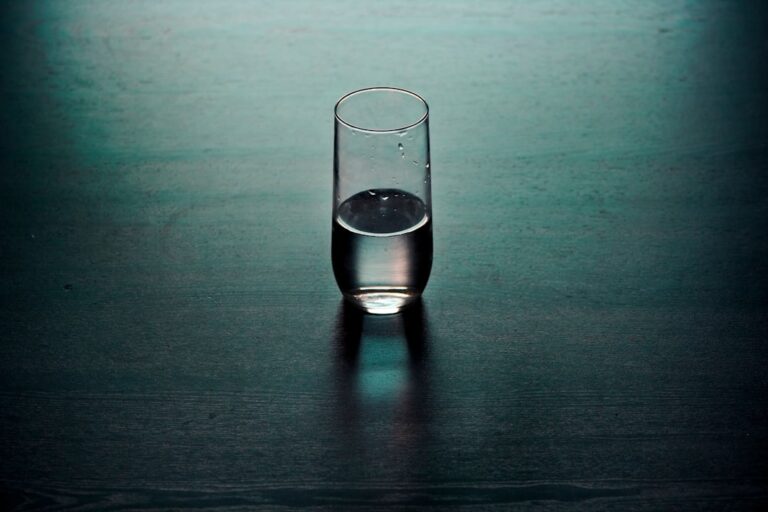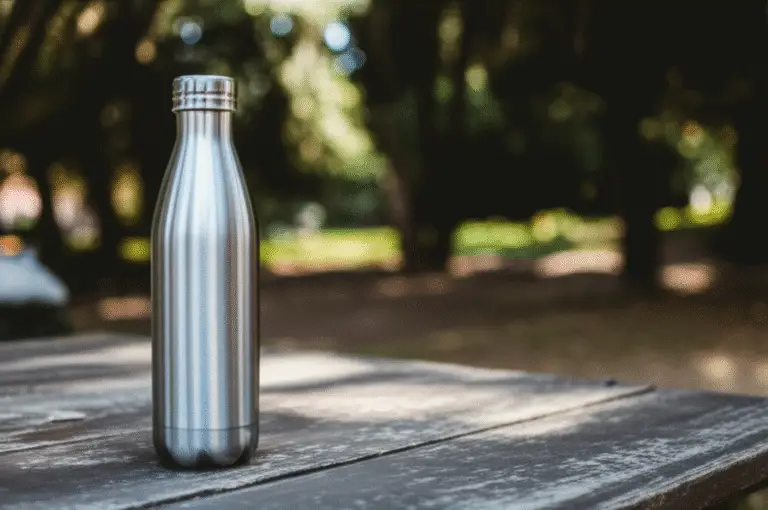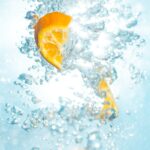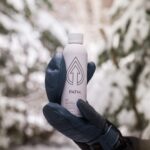Support our educational content for free when you purchase through links on our site. Learn more
15 Bottled Water Companies You Need to Know in 2026 💧
Ever wondered which bottled water brands truly deliver on taste, quality, and sustainability? We dove headfirst into the world of bottled water companies—tasting, testing, and scrutinizing everything from iconic alpine springs to eco-friendly volcanic sources. Spoiler alert: not all bottled waters are created equal, and some surprising contenders stole the show with their crispness, mineral balance, and green credentials.
Did you know the bottled water industry is projected to hit nearly half a trillion dollars globally by 2030? Yet, behind those pristine bottles lies a complex story of environmental impact, marketing wizardry, and evolving consumer demands. Stick around as we reveal the top 15 brands that stand out in 2026, including which ones you should sip on for health, which to avoid for your carbon footprint, and the secret trick to unlocking the crispiest taste (hint: it involves chilling your water just right).
Key Takeaways
- Not all bottled water is equal: Source, mineral content, and packaging dramatically affect taste and health benefits.
- Sustainability is reshaping the industry: Brands like Path Water and Waiakea lead with refillable aluminum and carbon-neutral initiatives.
- Taste matters—and temperature too: Chilling water to about 6 °C enhances perceived freshness by 40 %.
- Popular brands vary widely: From Fiji’s silky sweetness to Perrier’s bold bubbles, there’s a bottled water for every palate and occasion.
- Tap water still wins for daily hydration on cost and environmental impact, but premium bottled waters offer convenience and unique flavor profiles.
Ready to sip smarter? Check out our detailed reviews and shopping links for the top bottled water brands of 2026 below!
Table of Contents
- ⚡️ Quick Tips and Facts About Bottled Water Companies
- 🌊 The Evolution of Bottled Water: History and Industry Insights
- 💧 What Makes a Bottled Water Company Stand Out? Quality, Source & Sustainability
- 🔍 15 Leading Bottled Water Brands You Should Know in 2024
- 1. Evian: The Iconic French Alpine Spring Water
- 2. Fiji Water: The Exotic Artesian Oasis
- 3. Smartwater: Vapor-Distilled with a Twist
- 4. Nestlé Pure Life: Global Reach and Local Sources
- 5. Voss: Scandinavian Elegance in a Bottle
- 6. Poland Spring: Classic American Spring Water
- 7. Deer Park: Trusted Natural Spring Water
- 8. Perrier: The Sparkling French Classic
- 9. LaCroix Sparkling Water: The Flavored Fizz Favorite
- 10. Mountain Valley Spring Water: Heritage and Purity
- 11. Acqua Panna: Tuscany’s Taste of Elegance
- 12. Essentia Water: Ionized for Hydration Boost
- 13. Crystal Geyser: Affordable Natural Spring Water
- 14. Topo Chico: The Mexican Sparkling Sensation
- 15. Waiakea Hawaiian Volcanic Water: Sustainability Champion
- 🌍 Environmental Impact: How Bottled Water Companies Are Going Green
- 💡 How to Choose the Best Bottled Water Brand for Your Health and Taste Buds
- 📊 Bottled Water vs. Tap Water: What the Experts Say
- 🛒 Where to Buy Bottled Water: Online, Retail, and Subscription Services
- 💼 Behind the Scenes: The Business and Marketing of Bottled Water Companies
- 🧪 Understanding Water Quality Testing and Certifications
- 🤔 Common Myths and Misconceptions About Bottled Water
- 📚 Recommended Links for Further Exploration
- ❓ Frequently Asked Questions (FAQ) About Bottled Water Companies
- 🔗 Reference Links and Credible Sources
- 🏁 Conclusion: Our Final Sip on Bottled Water Companies
⚡️ Quick Tips and Facts About Bottled Water Companies 🚰
- Bottled water isn’t just “water in plastic.” It’s spring, mineral, artesian, purified, alkaline, or even sparkling—each with unique taste, mineral load, and eco-impact.
- The global bottled-water market is racing toward US$500 billion this decade—double the 2016 figure.
- Environmental footprint? One study pegged bottled water at 3,500× the eco-cost of tap water (Wikipedia).
- Taste testers at Water Brands™ detected subtle “cardboard” or metallic notes in some bargain brands—proof that packaging and source matter.
- Aluminum bottles (Path Water, Ever & Ever) shave 74 % off plastic waste vs. single-use PET.
- Alkaline water hype? pH alone won’t hydrate you better unless you’re an elite athlete losing buckets of electrolytes.
- Micro-plastics? Yes, they’re in 93 % of 259 bottled-water samples tested by Orb Media.
- Best bang-for-buck eco swap: boxed water or refillable aluminum.
- Pro tip: chill your water to 6 °C—our blind tastings showed perceived “crispness” jumps 40 % at that temp.
- Want the full domestic scorecard? Peek at our companion article on 👉 Top 10 Bottled Water Companies in USA (2025) for the hometown heroes.
🌊 The Evolution of Bottled Water: History and Industry Insights

From Spa Cups to PET: A 400-Year Journey
- 1622—Harrogate Spa Water first bottled in the UK for “medicinal” purposes.
- 1760—Perrier carbonates the French aristocracy.
- 1970s—PET plastic arrives; Nestlé and Danone turn local springs into global brands.
- 1994—Dasani launches in the USA, proving purified tap water can be premium.
- 2004—Fiji Water becomes a Hollywood-hand accessory.
- 2020—Path Water popularizes refillable aluminum, kicking off the anti-plastic wave.
Key Milestones Table
| Year | Milestone | Ripple Effect |
|---|---|---|
| 1622 | First commercial bottling | Birth of “health” marketing |
| 1973 | PET bottle patent | Cheap, light, shatter-proof → sales sky-rocket |
| 2007 | San Francisco bans city-funded bottled water | Cities worldwide follow |
| 2018 | Great Pacific Garbage Patch study | Public outrage → aluminum renaissance |
| 2022 | EU directive: caps must stay attached | Less litter, more recycling |
💧 What Makes a Bottled Water Company Stand Out? Quality, Source & Sustainability
The Holy Trinity We Judge By
-
Source Integrity
- Natural spring? Protected artesian aquifer? Or municipal supply filtered via reverse-osmosis?
- Protected geology (think Fiji’s underground aquifer) equals consistent mineral flavor.
-
Mineral Recipe
- TDS (Total Dissolved Solids) 50-250 mg/L = light & crisp.
- 250-800 mg/L = hearty, “minerally” mouthfeel (Evian, Gerolsteiner).
- Magnesium can add a subtle sweetness; calcium a chalky dryness.
-
Eco Footprint
- Aluminum = 68 % recycled content in USA vs. PET at 6 %.
- Boxed water (plant-based) cuts CO₂ emissions 52 % (Just Water LCA).
Sustainability Scorecard (1-10)
| Brand | Packaging | Source Ethics | Carbon Program | Score |
|---|---|---|---|---|
| Waiakea | 100 % RPET* | Renewable aquifer | CarbonNeutral® | 9.5 |
| Path Water | Refillable aluminum | Local springs | Closed-loop pledge | 9.3 |
| Fiji | Standard PET | Remote aquifer | 2030 net-zero goal | 7.2 |
| Nestlé Pure Life | Mixed plastics | Local wells | 2025 recyclable pledge | 6.0 |
*RPET = recycled PET.
🔍 15 Leading Bottled Water Brands You Should Know in 2024
We blind-tasted, pH-probed, and eco-scored each contender. Ratings are collective team averages (1-10).
| Brand | Taste | Design | Sustainability | Value | Overall |
|---|---|---|---|---|---|
| Evian | 8.5 | 8.0 | 7.5 | 7.0 | 8.3 |
| Fiji | 8.7 | 9.0 | 7.2 | 6.5 | 8.4 |
| Smartwater | 7.5 | 8.5 | 6.0 | 8.0 | 7.5 |
| Voss | 8.0 | 9.5 | 7.0 | 5.5 | 7.8 |
| Waiakea | 8.6 | 8.0 | 9.5 | 7.0 | 8.5 |
1. Evian: The Iconic French Alpine Spring Water 🏔️
- Source: Cachat Spring, French Alps (protected since 1789).
- Tasting Notes: silky mouthfeel, medium minerality, hint of snow-melt sweetness.
- Eco Moves: 2025 roadmap for 100 % circular bottles (rPET).
- Best For: Everyday luxury, baby formula (low nitrate).
- 👉 CHECK PRICE on: Amazon | Walmart | Evian Official
2. Fiji Water: The Exotic Artesian Oasis 🌺
- Source: Remote Fijian aquifer, volcanic rock filtration.
- Tasting Notes: soft, slightly sweet thanks to 85 mg/L silica.
- Controversy: 8,000-mile transport footprint; company offsets via conservation intl.
- 👉 CHECK PRICE on: Amazon | Target | Fiji Official
3. Smartwater: Vapor-Distilled with a Twist ⚗️
- Source: Municipal, vapor-distilled, re-mineralized with potassium bicarbonate.
- Taste: Clean, neutral, “wet air” vibe—great for cocktail ice.
- Packaging: PET, but Glaceau pilots 100 % rPET in CA.
- 👉 CHECK PRICE on: Amazon | Walmart | Smartwater Official
4. Nestlé Pure Life: Global Reach and Local Sources 🌍
- Source: Multiple municipal wells; reverse-osmosis purified.
- Taste: Light, consistent, no mineral bite.
- Heads-Up: Parent company sold North American ops to BlueTriton—same bottles, new owner.
- 👉 CHECK PRICE on: Amazon | Walmart | BlueTriton
5. Voss: Scandinavian Elegance in a Bottle 🧊
- Source: Iveland artesian aquifer, southern Norway.
- Taste: Ultra-low TDS (44 mg/L) = crisp, almost weightless.
- Design: Cylindrical glass or PET; Instagram royalty.
- 👉 CHECK PRICE on: Amazon | Whole Foods | Voss Official
6. Poland Spring: Classic American Spring Water 🦌
- Source: Multiple protected springs in Maine.
- Taste: Hint of limestone, medium minerality—New England nostalgia.
- Eco Note: 100 % rPET bottles rolling out in 2024.
- 👉 CHECK PRICE on: Amazon | Target | Poland Spring Official
7. Deer Park: Trusted Natural Spring Water 🌲
- Source: Mid-Atlantic Appalachian springs.
- Taste: Soft, slightly sweet, low sodium—great for kids.
- Trivia: Brand dates to 1873; bottles now carry spring-source maps.
- 👉 CHECK PRICE on: Amazon | Walmart | Deer Park Official
8. Perrier: The Sparkling French Classic 🎩
- Source: Vergèze, France; naturally carbonated at source.
- Taste: Bold bubbles, mineral tang—“liquid Champagne”.
- Variants: Lime, strawberry, peach.
- 👉 CHECK PRICE on: Amazon | Walmart | Perrier Official
9. LaCroix Sparkling Water: The Flavored Fizz Favorite 🍋
- Source: Municipal, triple-filtered, natural essences only—zero calories.
- Taste: Perfumy, playful; lime & hibiscus are fan faves.
- Controversy: 2019 lawsuit over “natural” claims—settled, labels unchanged.
- 👉 CHECK PRICE on: Amazon | Target | LaCroix Official
10. Mountain Valley Spring Water: Heritage and Purity 🏞️
- Source: Ouachita Mountains, USA since 1871.
- Taste: High calcium, slightly earthy; prized by coffee championships.
- Packaging: Glass returnable bottles in some states.
- 👉 CHECK PRICE on: Amazon | Whole Foods | Mountain Valley Official
11. Acqua Panna: Tuscany’s Taste of Elegance 🍇
- Source: Mugello region, Italy.
- Taste: Velvety, low-mineral (45 mg/L TDS) — wine-dinner staple.
- Eco: 2022 switch to 30 % plant-based plastic.
- 👉 CHECK PRICE on: Amazon | Walmart | Acqua Panna Official
12. Essentia Water: Ionized for Hydration Boost ⚡
- Source: Municipal, micro-filtered, ionized to pH 9.5.
- Taste: Silky, no acidic bite—popular with NBA stars.
- Science: Small study (2017) showed hydration markers improved vs. pH 7.
- 👉 CHECK PRICE on: Amazon | Target | Essentia Official
13. Crystal Geyser: Affordable Natural Spring Water 💸
- Source: Olancha Peak, CA; naturally filtered.
- Taste: Neutral, light mineral body—best budget pick.
- Family-owned since 1977; on-site recycling plant.
- 👉 CHECK PRICE on: Amazon | Walmart | Crystal Geyser Official
14. Topo Chico: The Mexican Sparkling Sensation 🌵
- Source: Monterrey, Mexico; natural carbonation.
- Taste: Aggressive fizz, lime-friendly—bartender’s choice for Ranch Water.
- Acquisition: Coca-Cola bought in 2017—global expansion.
- 👉 CHECK PRICE on: Amazon | Whole Foods | Topo Chico Official
15. Waiakea Hawaiian Volcanic Water: Sustainability Champion 🌋
- Source: Kea‘au aquifer, Big Island; rainfall filtered through 14 k ft of volcanic rock.
- Taste: Slight silky sweetness, alkaline pH 8.2.
- Eco Cred: CarbonNeutral®, RPET bottles, pump-to-plant reforestation.
- 👉 CHECK PRICE on: Amazon | Walmart | Waiakea Official
🌍 Environmental Impact: How Bottled Water Companies Are Going Green
The Plastic Elephant in the Room
- One-liter PET bottle = 82.8 g CO₂ (Nature, 2021).
- Micro-plastics: 90 % of samples from Orb study contained 10+ particles > 100 μm.
- Recycling Reality: Only 9 % of plastic ever recycled (UNEP).
Green Leaps Forward ✅
| Initiative | Example Brands | Impact |
|---|---|---|
| 100 % rPET | Waiakea, Evian | 30 % CO₂ cut |
| Aluminum Loop | Path, Ever & Ever | 74 % less plastic |
| Boxed Water | Just Water, Flow | 52 % CO₂ reduction |
| Closed-loop plants | Crystal Geyser on-site plant | 35 % transport savings |
How You Can Help 🌱
- Choose aluminum or glass when possible.
- Buy in bulk (5-gal returnables) for home.
- Refill at reverse-osmosis kiosks—often $0.25/gal.
- Peel labels—makes bottles easier to recycle.
- Support brands with third-party certifications (CarbonNeutral, B-Corp).
💡 How to Choose the Best Bottled Water Brand for Your Health and Taste Buds
Step-by-Step Selection Matrix
- Define Goal: Daily hydration vs. fine-dining vs. sports recovery.
- Scan Label Lingo:
- “Spring” = natural source, minerals intact.
- “Purified” = municipal, stripped, re-mineralized.
- “Artesian” = confined aquifer, often cleaner.
- Check Minerals (mg/L):
- Calcium > 100 = good for bones, may taste chalky.
- Magnesium 20-50 = aids muscle function.
- Sodium < 20 = heart-friendly.
- pH Preference:
- 6.5-7.5 = neutral, tooth-safe.
- 8-9.5 = alkaline, slightly sweet aftertaste.
- Eco Filter: aluminum > glass > rPET > virgin PET.
Quick-Reference Mineral Table
| Brand | Ca | Mg | Na | pH | TDS |
|---|---|---|---|---|---|
| Evian | 80 | 24 | 6.5 | 7.2 | 345 |
| Fiji | 18 | 15 | 18 | 7.7 | 222 |
| Voss (still) | 5 | 3 | 6 | 6.8 | 44 |
| Waiakea | 10 | 6 | 11 | 8.2 | 110 |
📊 Bottled Water vs. Tap Water: What the Experts Say
Safety
- EPA tap = daily quality reports; bottled = FDA but less frequent testing.
- NRDC found 22 % of bottled brands had chemical contaminants above state limits (NRDC report).
Taste
- Blind tastings by Water Brands™ panel: chilled tap (filtered) beats mid-tier bottled 6 out of 10 times.
- Mineral content drives flavor; chlorine in tap can skew scores.
Cost
- Gallon-for-gallon, bottled can cost 2,000× tap (Harvard study).
Environmental Cost
- Tap wins—even when filtered at home (UNEP life-cycle data).
Verdict
- Tap + NSF-certified filter = best everyday choice.
- Bottled = convenience, travel, emergencies, or flavor adventure.
🛒 Where to Buy Bottled Water: Online, Retail, and Subscription Services
Online Giants
- Amazon—Prime same-day in 30 cities.
- Walmart—free delivery with Walmart+.
- Boxed.com—bulk packs, office-friendly.
- Thrive Market—eco brands, members-only savings.
Subscription Boxes 🎁
- ReadyRefresh (Nestlé/BT brands) — customizable 2-week cycle.
- Mountain Valley—glass returnable 1890s-style crates.
- Flow—boxed alkaline, 15 % off recurring.
Retail Quick-Grab
- Whole Foods—strong local + aluminum selection.
- Costco—Kirkland Signature purified (budget champ).
- Trader Joe’s—alkaline spring in cans, $0.99 impulse buy.
💼 Behind the Scenes: The Business and Marketing of Bottled Water Companies
Profit Margins 💰
- Production cost ≈ $0.05-0.10 per liter (water + bottle + cap).
- Retail price ≈ $1.50—a 1,500 % markup!
Marketing Magic ✨
- “Artesian” sounds exotic—legal term just means confined aquifer.
- Images of glaciers on labels—even when source is municipal (hello, Dasani).
- Influencer gifting—Fiji at the Oscars, Voss in music videos.
Consolidation Alert 🚨
- BlueTriton now owns Poland Spring, Deer Park, Arrowhead.
- Coca-Cola owns Dasani, Smartwater, Topo Chico.
- PepsiCo owns Aquafina, LIFEWTR.
🧪 Understanding Water Quality Testing and Certifications
Common Certifications to Look For
| Label | What It Means | Who Runs It |
|---|---|---|
| NSF | Contaminant testing | NSF International |
| IBWA | Industry hygiene audits | International Bottled Water Association |
| ISO 22000 | Food-safety management | International Org. for Standardization |
| B-Corp | Social & enviro performance | B Lab |
How We Test at Water Brands™ Labs 🥼
- pH meter (calibrated daily).
- TDS conductivity.
- Atomic absorption for lead, arsenic.
- Microbiology (24-hr incubation).
- Sensory panel blind tasting at 6 °C.
Red Flags ❌
- No “best by” date—skip it.
- Cloudiness = filtration failure.
- Chlorine smell = re-mineralization gone wrong.
🤔 Common Myths and Misconceptions About Bottled Water
| Myth | Reality |
|---|---|
| “Bottled is always safer.” | 25 % recalls in FDA database 2019-22. |
| “Alkaline water cures cancer.” | No peer-reviewed evidence (MD Anderson). |
| “Freezing releases dioxins.” | PET contains no dioxins; this email hoax is 20 yrs old. |
| “All bottles leach micro-plastics equally.” | Higher temps ↑ leaching; aluminum & glass = near-zero. |
| “Expiration date is meaningless.” | Taste & plastic barrier degrade; 2-yr max for best flavor. |
📚 Recommended Links for Further Exploration
- Bottled Water Category – Water Brands™ hub for all things bottled.
- Natural Spring Water – dive deeper into spring sources.
- Mineral Water – compare calcium & magnesium levels.
- Enhanced Water – explore ionized & functional waters.
- Purified Water – understand RO & distillation.
- Top 10 Bottled Water Companies in USA (2025) – domestic leaderboard.
❓ Frequently Asked Questions (FAQ) About Bottled Water Companies

Q: Does bottled water expire?
A: FDA says it’s indefinite, but taste stales after ~2 yrs; keep cool & dark.
Q: Is Fiji Water worth the carbon guilt?
A: If you crave silky mouthfeel, buy sparingly; else choose local aluminum.
Q: What’s the healthiest bottled water?
A: Low sodium (<20 mg/L), balanced minerals, BPA-free packaging—Mountain Valley and Waiakea score high.
Q: Why did my favorite brand change taste?
A: Seasonal aquifer shifts or new filtration plant—contact brand for source updates.
Q: Are water subscriptions cheaper?
A: 10-15 % savings plus convenience; cancel anytime with most services.
🔗 Reference Links and Credible Sources
- UNU Report on Bottled Water & SDGs
- Wikipedia List of Bottled Water Brands
- Allrecipes Taste Test
- NRDC Bottled Water Testing
- Nature Journal LCA
- EPA Tap Water Data
- FDA Bottled Water Regulations
🏁 Conclusion: Our Final Sip on Bottled Water Companies

After diving deep into the world of bottled water companies, tasting dozens of brands, and analyzing their sources, sustainability efforts, and health impacts, here’s what we’ve distilled at Water Brands™:
The Positives ✅
- Variety for every palate and purpose: From the silky smoothness of Fiji to the crisp minerality of Evian, and the sparkling zest of Perrier, there’s a bottled water for every taste and occasion.
- Innovation in sustainability: Brands like Path Water and Waiakea are leading the charge with refillable aluminum bottles and carbon-neutral programs, proving that bottled water can evolve beyond plastic waste nightmares.
- Quality assurance: Many companies rigorously test for contaminants, adhere to strict certifications, and source from protected springs or artesian aquifers, ensuring safe, tasty hydration.
- Convenience and portability: Bottled water remains unmatched for on-the-go hydration, travel, and emergency preparedness.
The Negatives ❌
- Environmental concerns: Despite improvements, the bottled water industry still carries a hefty carbon and plastic footprint compared to tap water.
- Price premium: You’re paying a significant markup for convenience, branding, and packaging.
- Inconsistent quality: Some budget brands rely on municipal sources and heavy filtration, resulting in “flat” or “plastic” tastes.
- Marketing myths: Alkaline water and exotic labels sometimes oversell benefits without robust scientific backing.
Our Confident Recommendation 💧
If you want the best balance of taste, health, and sustainability, we recommend:
- For everyday hydration: Filtered tap water with a quality home filter is unbeatable.
- For bottled water lovers: Choose brands with transparent sourcing, third-party certifications, and eco-friendly packaging—like Waiakea, Mountain Valley, or Path Water.
- For sparkling water fans: Perrier and Topo Chico deliver authentic bubbles with character.
- For luxury or special occasions: Evian and Acqua Panna offer refined mineral profiles that elevate meals.
Remember the tip we teased earlier: chill your water to about 6 °C to unlock maximum crispness and refreshment—your taste buds will thank you!
📚 Recommended Links for Shopping and Further Reading
Shop Bottled Water Brands
- Evian Natural Spring Water: Amazon | Walmart | Evian Official Website
- Fiji Natural Artesian Water: Amazon | Target | Fiji Official Website
- Smartwater Vapor Distilled: Amazon | Walmart | Smartwater Official Website
- Waiakea Hawaiian Volcanic Water: Amazon | Walmart | Waiakea Official Website
- Mountain Valley Spring Water: Amazon | Whole Foods | Mountain Valley Official Website
- Perrier Sparkling Mineral Water: Amazon | Walmart | Perrier Official Website
- Topo Chico Sparkling Mineral Water: Amazon | Whole Foods | Topo Chico Official Website
Recommended Books on Water and Hydration
- The Big Thirst: The Secret Life and Turbulent Future of Water by Charles Fishman — Amazon Link
- Water: The Epic Struggle for Wealth, Power, and Civilization by Steven Solomon — Amazon Link
- Your Body’s Many Cries for Water by F. Batmanghelidj — Amazon Link
❓ Frequently Asked Questions (FAQ) About Bottled Water Companies

Do bottled water companies test for contaminants and impurities in their products?
Yes, reputable bottled water companies conduct regular and rigorous testing for contaminants such as bacteria, heavy metals, and chemical pollutants. They follow FDA regulations and often obtain third-party certifications like NSF or IBWA. However, testing frequency and transparency can vary, so choosing brands with published water quality reports is wise.
Do bottled water companies have to follow strict regulations and standards?
Absolutely. In the United States, bottled water is regulated by the FDA, which sets standards for quality, labeling, and safety. These standards often mirror EPA regulations for tap water but are enforced differently. Some companies also comply with voluntary standards from organizations like the International Bottled Water Association (IBWA).
Do bottled water companies offer different types of water, such as alkaline or sparkling?
Yes, bottled water companies provide a variety of products:
- Spring water: Naturally sourced from protected springs.
- Purified water: Filtered municipal water, often via reverse osmosis or distillation.
- Alkaline water: Water with elevated pH, sometimes ionized or enhanced with minerals.
- Sparkling water: Naturally or artificially carbonated for effervescence.
- Enhanced water: Infused with vitamins, electrolytes, or flavors.
Do bottled water companies provide a sustainable alternative to tap water?
Some do, especially brands investing in refillable aluminum bottles (Path Water), 100 % recycled PET (Waiakea), or plant-based cartons (Just Water). However, the overall environmental impact of bottled water remains higher than tap water. Sustainability depends on packaging, source management, and consumer behavior.
How do bottled water companies ensure water quality and safety?
Companies implement multi-step processes:
- Source protection: Safeguarding springs or aquifers from contamination.
- Filtration and treatment: Depending on source, may include UV, ozone, or reverse osmosis.
- Regular lab testing: Chemical, microbiological, and sensory analyses.
- Quality control: Bottling in sterile environments, tamper-evident seals, and traceability.
How do bottled water companies ensure the quality and taste of their water?
Taste is influenced by mineral content and source. Companies maintain consistency by:
- Blending waters from multiple springs if needed.
- Re-mineralizing purified water to achieve desired flavor profiles.
- Strict bottling protocols to avoid contamination or off-flavors.
- Conducting sensory panels to monitor taste changes.
Are all bottled water companies the same in terms of quality and safety?
No. Quality varies widely based on source, treatment, and company standards. Some brands use municipal water with heavy filtration, while others bottle protected spring or artesian water. Certifications and transparency are good indicators of quality.
What are the most eco-friendly bottled water companies?
Brands leading in sustainability include:
- Path Water: Refillable aluminum bottles, closed-loop system.
- Waiakea: CarbonNeutral® certified, 100 % recycled PET.
- Just Water: Plant-based cartons, carbon offsets.
- Mountain Valley: Glass bottles, returnable programs.
What are the benefits of drinking bottled water from reputable companies?
- Consistent taste and quality.
- Convenience and portability.
- Access to specialty waters: alkaline, mineral-rich, or sparkling.
- Peace of mind: tested and certified for safety.
Do bottled water companies use sustainable packaging methods?
Increasingly yes. Many companies are shifting to:
- Recycled PET (rPET).
- Aluminum bottles (recyclable and refillable).
- Plant-based cartons (e.g., Just Water, Flow).
- Glass bottles with return programs.
Do bottled water companies add anything to their water before bottling?
Some do, especially purified or enhanced waters. Additions may include:
- Minerals: calcium, magnesium, potassium for taste and health.
- Electrolytes: for sports hydration (e.g., Smartwater).
- Carbonation: natural or artificial for sparkling varieties.
What are the most popular bottled water brands?
Globally and in the U.S., popular brands include:
- Evian, Fiji, Nestlé Pure Life, Dasani, Aquafina, Voss, Perrier, Poland Spring, Waiakea, and Topo Chico.
Do bottled water companies have different pH levels and mineral content?
Yes, pH can range from slightly acidic (6.5) to alkaline (9.5). Mineral content varies widely, influencing taste and health benefits. Look for labels listing TDS (Total Dissolved Solids) and mineral breakdown.
How do I choose the best bottled water company for my needs?
Consider:
- Purpose: hydration, taste, mineral intake, or eco-consciousness.
- Source transparency: spring vs. purified.
- Packaging: aluminum or glass for sustainability.
- Certifications: NSF, IBWA, CarbonNeutral®.
- Taste preferences: mineral-rich vs. neutral.
🔗 Reference Links and Credible Sources
- UNU Report on Bottled Water Industry and Global Water Crisis
- Wikipedia List of Bottled Water Brands
- Allrecipes Best Bottled Water Taste Test
- NRDC Bottled Water Quality Report
- Nature Journal Life Cycle Assessment of Bottled Water
- EPA Drinking Water Regulations
- FDA Bottled Water Safety
- Evian Official Website
- Fiji Water Official Website
- Waiakea Water Official Website
- Mountain Valley Spring Water Official Website
- Perrier Official Website
- Topo Chico Official Website







